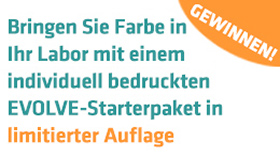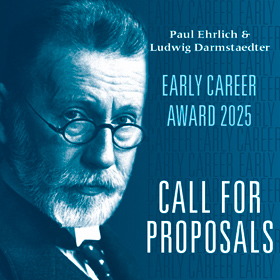Am I Good Enough to be a Scientist?
Career strategies for young European scientists
Antonio Marco, Labtimes 03/2015
Page 1 | Page 2 | Page 3
The important problems are solved
I still remember a conversation I had with a friend some years ago, when I told him that I had published my first scientific paper. His reaction was something like “but it is about something new that you have discovered?” He was clearly confused as he thought that there are not many things left to be discovered in science. But science, by its very nature, will never run out of potential discoveries. My friend’s impression is actually quite general. Even we scientists sometimes think that there aren’t any more important discoveries to be made. But that’s not true.
The following sentence is attributed to Lord Kelvin, “There is nothing new to be discovered in physics now, all that remains is more and more precise measurement”. A few years later, the whole world of Physics was shaken by the theories of relativity and quantum mechanics.
Scientific theories are models. Science progresses by proposing new models that are better than the old ones to explain known phenomena. That way, if you think about it, science progresses because scientists are always wrong. Hard as it sounds, that’s the nature of scientific discovery. It is important to acknowledge, study and understand the scientific work that has been done before us. But it is more important to understand that there are no ultimate truths in science. Believing that there’s nothing new to be discovered leads to frustration in young investigators. To avoid this trap, it is essential for a student to learn how science works. Read about philosophy of science (I recommend Alan Chalmers’ ‘What is this thing called science’ as a first introduction) and explore old papers in your field. That will give you a realistic picture of what to expect from your career.
Avoid the beginners’ traps
I discussed Cajal beginners’ traps with a PhD student in mind. However, it is important that supervisors play an active role in preventing students from failing because of these very snares. As a supervisor, one must encourage students to read about the philosophy and history of science, to be critical with scientific papers by promoting journal clubs, to encourage discussion within the group and with other scientists, and to be ready to be challenged and keep a positive attitude. After all, we, as supervisors, are responsible for the next generation of scientists. In Cajal’s words, “The greatest honour that can come to the master does not lie in moulding pupils to follow him, but in producing scholars who will surpass him”.
In conclusion, these and other snares prevent young investigators from developing a career in science. If you want to be a scientist and feel that you cannot compete with authorities in your field, or that basic sciences is of no interest, or that you may not be smart enough to be scientist, or even that there’s nothing else to say in your field, you’re not alone. We have all felt that way at some point and we have had to overcome these obstacles. Santiago Ramón y Cajal identified and described these pitfalls in the 19th century, and they still apply today. You must avoid these beginners’ traps with scepticism, curiosity, critical thinking and open-mindedness. Do not let any trap ruin your career.
|
Antonio Marco is a Research Lecturer at the University of Essex. He works in evolutionary genomics, particularly in gene regulatory mechanisms. Currently, he investigates the evolution of microRNA function. You can find him at http://amarco.net or on Twitter @amarcobio.
|
Page 1 | Page 2 | Page 3
Last Changed: 25.05.2015








